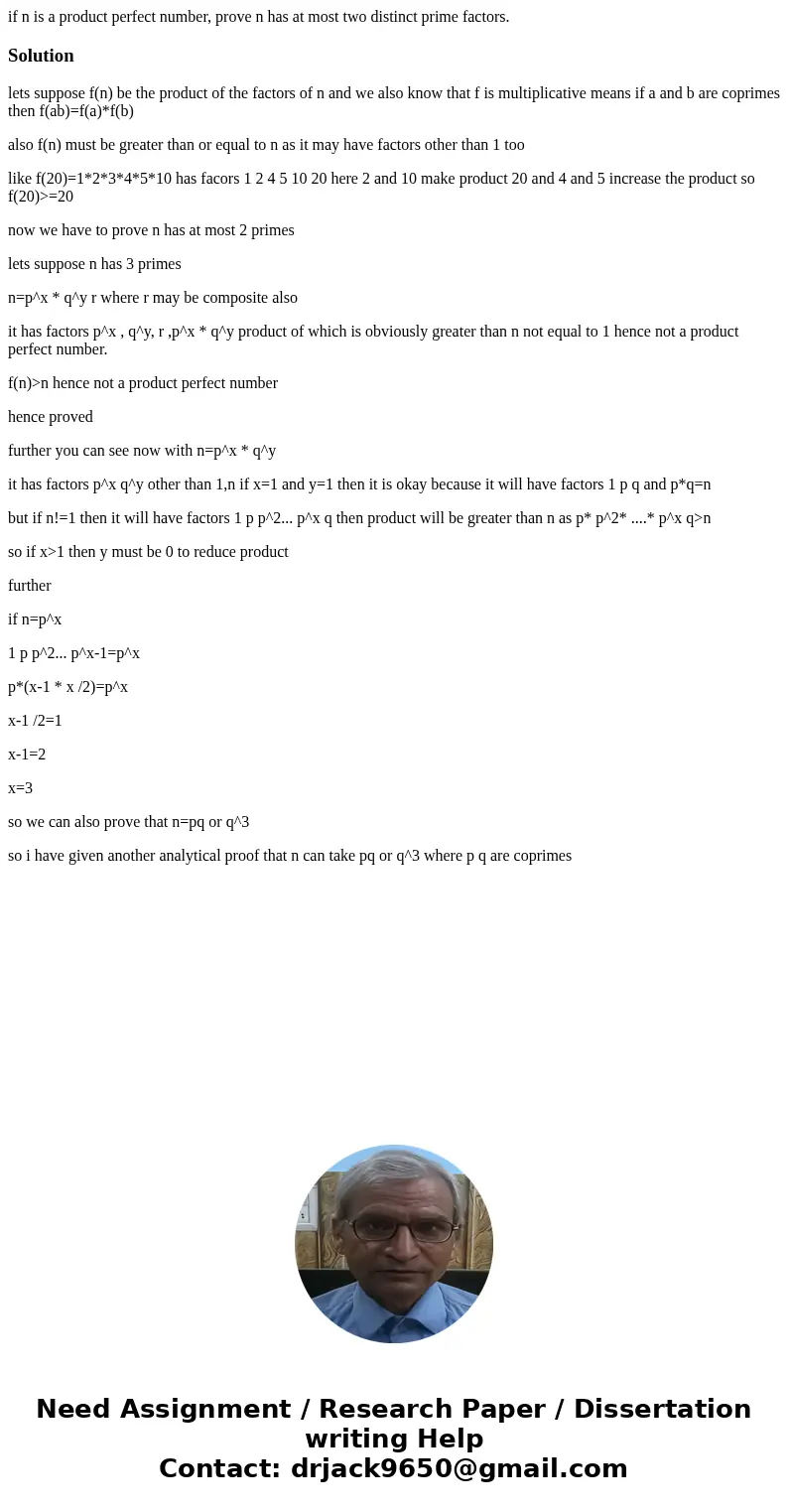if n is a product perfect number prove n has at most two dis
if n is a product perfect number, prove n has at most two distinct prime factors.
Solution
lets suppose f(n) be the product of the factors of n and we also know that f is multiplicative means if a and b are coprimes then f(ab)=f(a)*f(b)
also f(n) must be greater than or equal to n as it may have factors other than 1 too
like f(20)=1*2*3*4*5*10 has facors 1 2 4 5 10 20 here 2 and 10 make product 20 and 4 and 5 increase the product so f(20)>=20
now we have to prove n has at most 2 primes
lets suppose n has 3 primes
n=p^x * q^y r where r may be composite also
it has factors p^x , q^y, r ,p^x * q^y product of which is obviously greater than n not equal to 1 hence not a product perfect number.
f(n)>n hence not a product perfect number
hence proved
further you can see now with n=p^x * q^y
it has factors p^x q^y other than 1,n if x=1 and y=1 then it is okay because it will have factors 1 p q and p*q=n
but if n!=1 then it will have factors 1 p p^2... p^x q then product will be greater than n as p* p^2* ....* p^x q>n
so if x>1 then y must be 0 to reduce product
further
if n=p^x
1 p p^2... p^x-1=p^x
p*(x-1 * x /2)=p^x
x-1 /2=1
x-1=2
x=3
so we can also prove that n=pq or q^3
so i have given another analytical proof that n can take pq or q^3 where p q are coprimes

 Homework Sourse
Homework Sourse